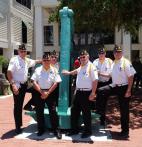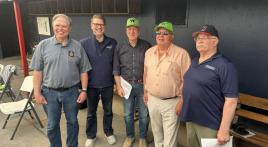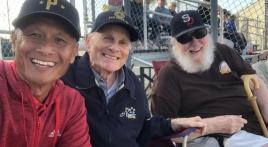Ever tried to march in pumps? I did, in October 1973 when I was ill-advised by a recruiter to pack a suitcase for basic training. Of course, I was the naïve 19-year-old who had more of an eye toward fashion than to consider practical footwear when I packed my bag.
Upon arrival at Fort McClellan, Ala., I learned there was a shortage of clothing and housing for new recruits and there would be a three-week delay in starting basic training. The wait to receive practical footwear caused my toenails to blacken and me to learn the skill of ignoring physical pain.
We learned the belated start of basic training was due to the largest number of women enlisting in the Army since WWII. I was stunned because I thought the idea of enlisting with my husband was a unique idea. We were drawn to the Army to learn technical skills, travel and get to college afterward. I had been influenced to enlist after I read a Ladies Home Journal article highlighting women in the military and their enhanced benefits and broader career options. I was curious what drew others to join in 1973 and in greater number since the '40s.
First the draft ended Jan. 27, 1973, and a volunteer military took its place. My husband and I felt more certainty enlisting together when we had the option to choose our Military Occupational Specialty (MOS) and our first duty station. We were also guaranteed to remain together, after separation for basic training. At the wisdom of our recruiter, we chose the same MOS and our first duty station at Fort Sill, Okla.
Second was a case allowing women to claim husbands as dependents. On Jan. 17, 1973, future Justice Ruth Bader Ginsburg was permitted by the Supreme Court to argue in favor of Lt. Sharron Frontiero. Frontiero, U.S. Air Force, applied for housing and medical benefits for her husband, Joseph, who she claimed as a "dependent." While servicemen could claim their wives as dependents and get benefits for them automatically, servicewomen had to prove that their husbands were dependent on them for more than half their support. Sharron sued, and the case was appealed up to the Supreme Court. On May 14, 1973 ,in an 8-1 decision, the Court found in favor of Frontiero.
We were honorably discharged Sept. 26, 1976, and went on to earn bachelor’s and master’s degrees. Our unique enlistment created challenges for the Army and for us as a couple, but we also had opportunities previously unavailable to enlistees.

1973 a pivotal time for women in the military
January 27, 2022
About the author:
Constance Lee Richards




